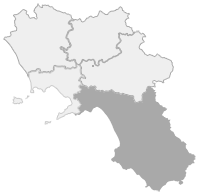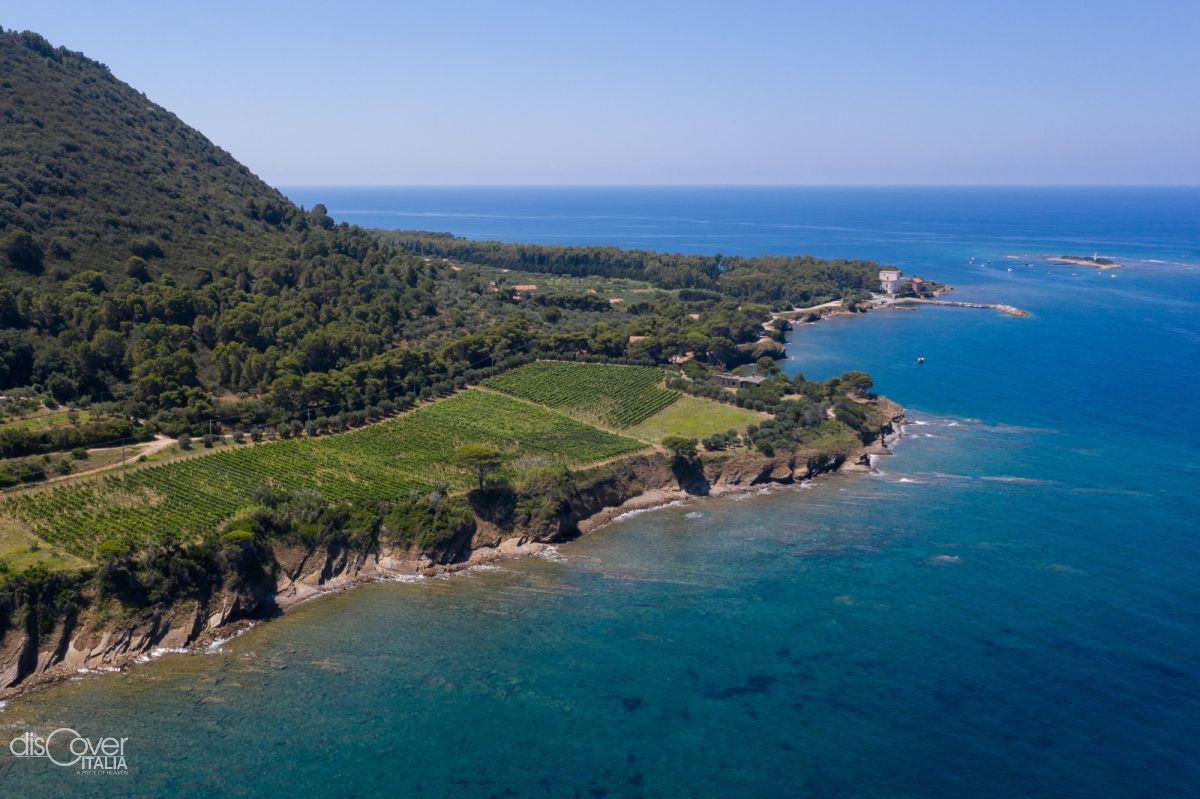Rest is only apparent. The earth, which has been generous again this year, is preparing to welcome the seeds of spring herbs among the rows of vines already almost bare.
They are the ladies of the field, the main beneficiaries of the next sowing. And the humble herbs, which will cover the ground with flowers in spring, will make the scenery of the Licosa vineyard, which extends on the promontory almost meeting the sea, even more spectacular. A corner of great environmental value, protected by a Site of Community Interest and a nature reserve. And also from the life choice of Alferio Romito, winemaker in Castellabate, as he is keen to present himself with strong and convincing motivations. Equal to those that have always accompanied him on the path he took when he was just a kid.
In that coastal part of Cilento linked to the myth of Leucosia, the Romito family has roots firmly anchored to the land for four generations. Like the vines, olive trees and figs, essential cornerstones of Cilento agriculture with which it has always dealt. And with whom Alferio has become familiar since he can remember. By family origin, he found himself in the land, in the harvests, involved even just as a spectator in the annual rhythms of cultivation. At the start. But then he decided that he wanted to invest his energies and his future there. Therefore he attended the Agricultural Technical Institute, then Viticulture and Enology at the Federico II University of Naples, to then obtain a master's degree in Agricultural Science and Technology and be able to summarize today, with just pride: «I am an agricultural expert, oenologist and agronomist». In short, someone who knows well what he takes care of every day with love, as well as with skill. To realize the dream, cultivated since he was fourteen, «to produce a bottle of wine with my name on it».
Organic farming and harvest in August
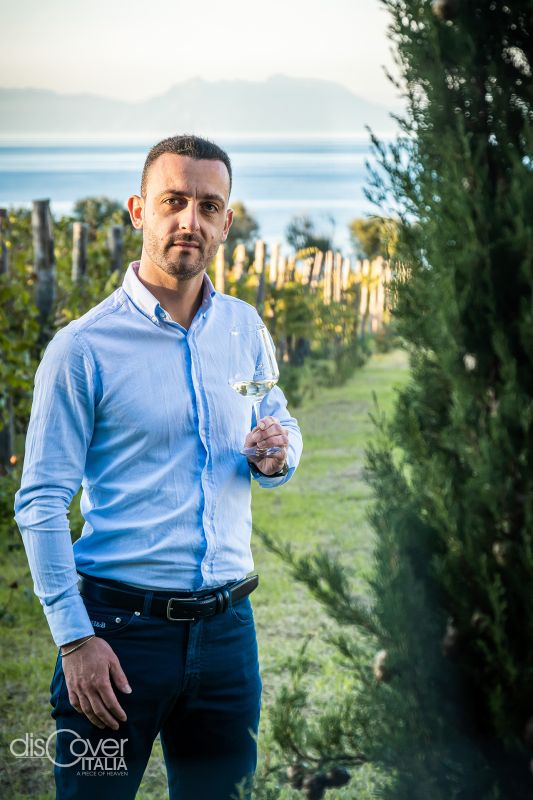
Even before the vines, attention is focused on the soil. «Mine is an organic company that excludes the use of invasive techniques both in the vineyard and in the cellar - he explains - Starting from this, we must take into account that it is not easy to manage all the pedological variables that arise in a land close to the sea. Beautiful land to look at, but exposed to the saltiness of storm surges, even those in spring when the vines begin to sprout, and to the wind, which facilitates the propagation of parasites, starting with powdery mildew. Thus, the approach cannot be tied to tradition, but must be purely scientific. And in fact we continuously carry out analyzes to monitor all of our wines, before they end up in the bottle».
Nothing is left to chance, starting with the care of the soil: «In autumn, we sow a mixture of various species of grass which, after being cut in spring, nourish the soil, bringing in the organic substance that improves it. At the same time, they protect the soil from the sun's rays and from the evaporation of humidity, which is very important in an area where it is not possible to intervene in the summer, not even with emergency irrigation. With organic farming, everything must be budgeted for first. In fact, despite the prolonged drought, this year the vines have maintained perfect vigor». And once again they donated their fruits much earlier than anywhere else. «We are the first to harvest in Cilento - confirms Romito - Our grapes have already optimal sugar and acidity in mid-August and therefore starting the harvest on August 10 is not a stretch. We anticipate all the other areas by about thirty days».
And certainly the position so close to the sea, in one of the most beautiful stretches of coast of the Peninsula, is «an added value, which contributes to the uniqueness of the product – underlines our guest – Furthermore, among the objectives there is the authenticity of wines, that is, that they come from those vineyards with those characteristics, which must be revealed right up to the bottle».
The Corsican Hill
Although much of his wine production comes from the vineyard by the sea, Romito has chosen to call his company "Colle del Corsicano". Which is the name of the «hill where my family has always lived and produced table wine». Sold loose, in quantity, when the wooden barrels from the cellar were still loaded on mules, because the driveway was far away.
On the hill that rises between Castellabate and Montecorice, the vineyards extend with a southern exposure. And there, where the pedo-climatic conditions are different from Licosa, Aglianico is grown in the old family vineyards, now renovated. An important step in the company growth process, which will still require years of commitment. Romito is well aware that the 25 thousand annual bottles will have to be progressively increased «to be present on the national and foreign markets. And we will have to plant new vineyards. But it takes time to become a company, the project will develop over a few decades, looking more and more at quality and respecting the territory».
Identification with the territory and visits to the vineyard
It is a special vineyard, that of Licosa. And not only for the quality of the wine that is produced there, but because it is set in a natural paradise. A uniqueness of which Romito, in love with his land, is perfectly aware, as well as of the responsibilities that derive from it. Responsibilities that he has taken into account since the beginning of his experience as a winemaker, including the choice of organic farming. «I promised myself not to change the landscape context of the vineyard - he says - for this reason I wanted to draw on paper, before planting, the dirt driveway and the orientation of the rows.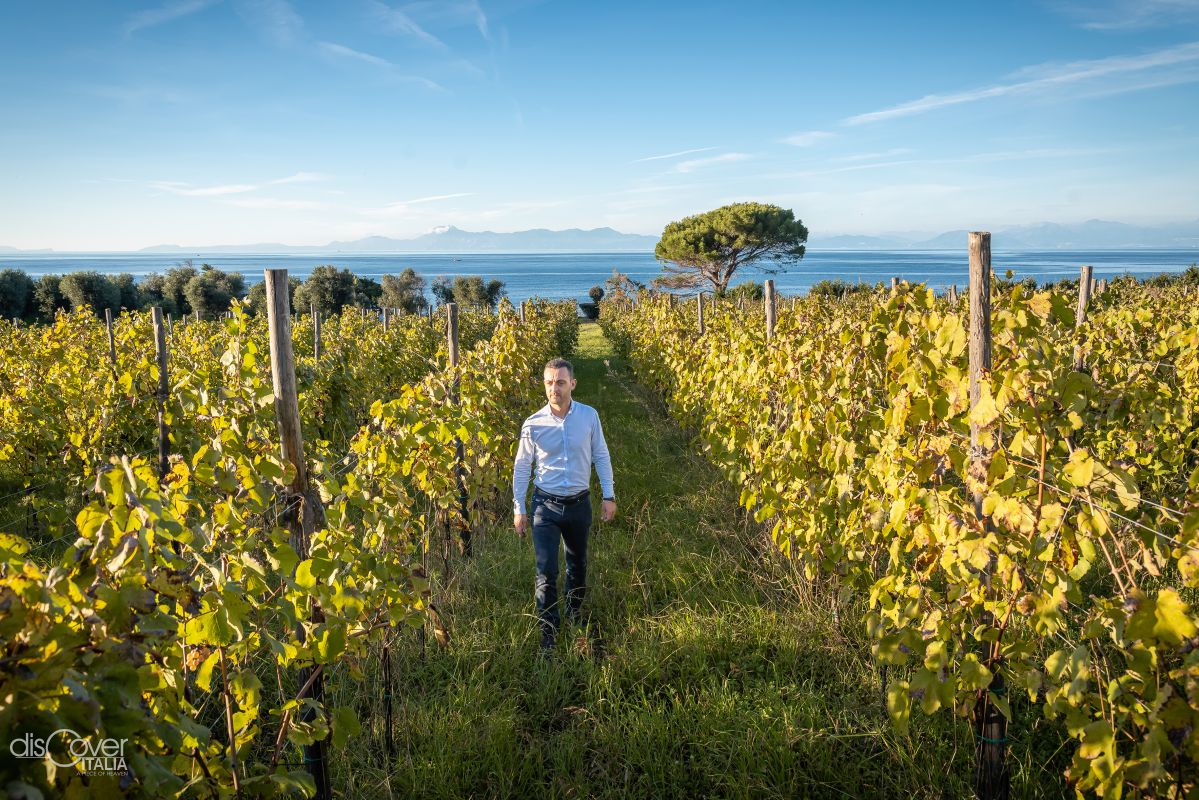
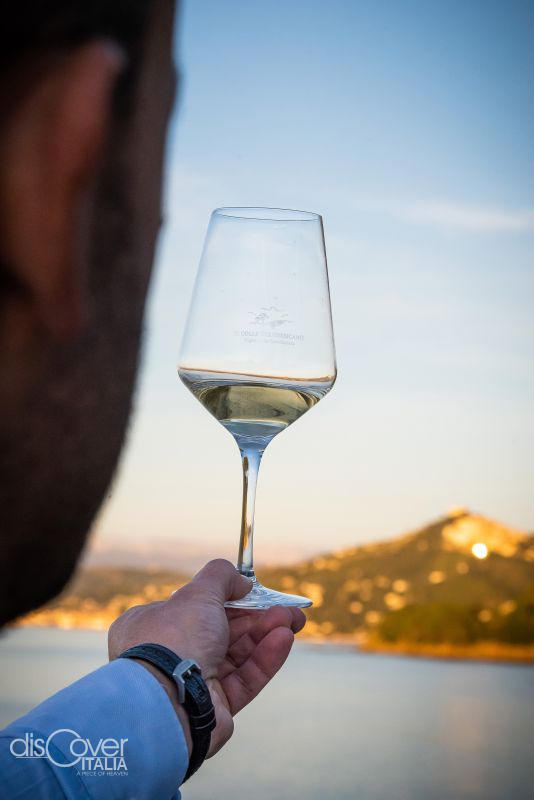
Vines, olive trees and figs, the best of the Cilento land
The oenologist's commitment has not erased Alferio's passion for oil, born as a boy among the family's centuries-old olive trees on the Colle del Corsicano. «To the ancient olive trees here – he says – are added the hundred 30/40 years old olive trees planted along the perimeter of the Licosa vineyard, which also have an aesthetic value in that place. Ours is a certified organic oil, cold pressed a few hours after harvesting, in order to keep all its healthy properties unaltered. It is a very small annual production, but for us, even in that case, quality counts».
As for the figs, «my father takes care of them, he cares a lot about them. We have reserved a space on the hill for him entirely for figs, which he enjoys producing for us and for his friends». Tribute to the tradition and the Cilento area where the vine reigns between land and sea.

